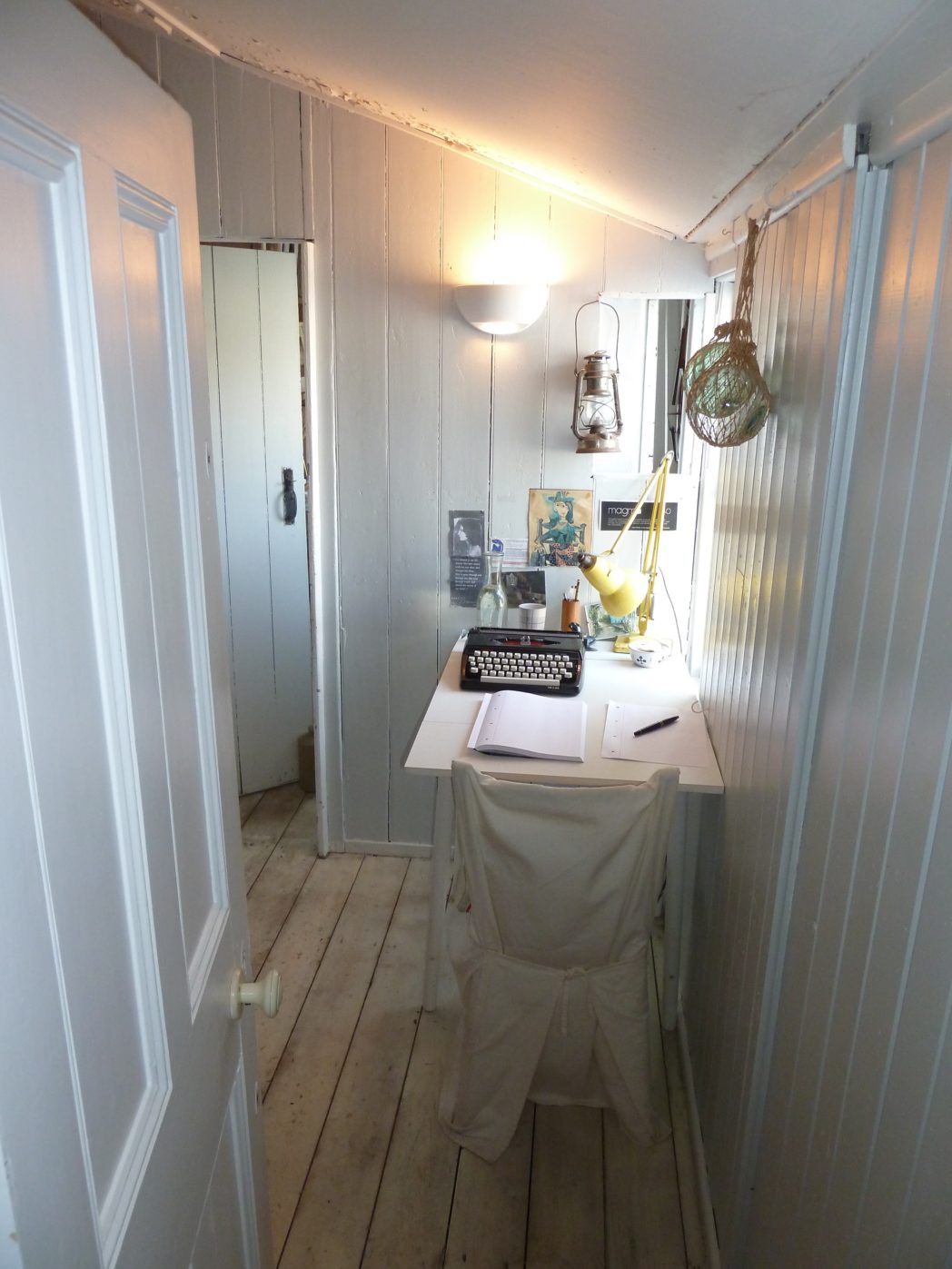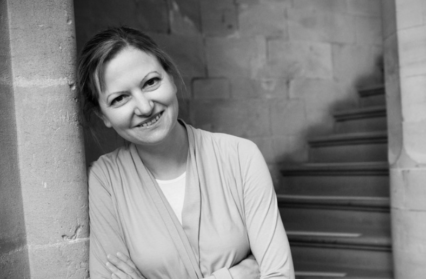Samantha Wynne-Rhydderch is next up in our Writers’ Rooms series, where we take a look into the creative spaces of some of our favourite writers. Wynne-Rhydderch’s first book, Rockclimbing in Silk, was published by Seren in 2001 and was described as “one of the finest collections (first or otherwise) to appear this year” by Patrick McGuinness. Her publications have been shortlisted for Wales Book of the Year (Not in These Shoes, Picador 2008), the Roland Mathias Prize (Banjo, Picador 2012) and the Michael Marks Award (Lime & Winter, Rack 2014). In 2012, Wynne-Rhydderch was Leverhulme writer in residence at the National Wool Museum and in 2014 she held a residency at the Dylan Thomas Boathouse to mark the centenary of the poet’s birth. She is the recipient of a Hawthornden Fellowship and in 2015 won an Arts Council Creative Wales Award to write the performance piece Tango in Stanzas. She also teaches on the Oxford University Master of Studies in Creative Writing.

I don’t have a writing room but a shed, or rather a suite of two shabby clapboard sheds tacked onto the back of my house in New Quay, neither of them much larger than a telephone box (remember those?). Although I can hear the sea, I can’t see it from the two-room shed. Instead I look out onto a tatty drainpipe and a scrap of lawn. If I crane my neck I can see the magnolia tree in which the sparrows and robins chatter and exchange songs. I hear their feet tapping on the shed roof as they take off and land and they are a constant reminder to treat my drafts lightly and to listen carefully for any ideas that might fall like feathers.
My grandfather built at least one of these sheds and has added or removed sections over the years. His presence in these two wooden rooms is very strong and I feel as if I’m there under sufferance; that in fact they belong to someone else and I’m merely a custodian for a handful of years while I get some of these poems on paper before moving on. The shed is lop-sided and everything in it hangs at an angle. Its endearing tilt reminds me not only that this is the work of someone who spent a lifetime sailing round the world to earn a living, but how precarious the business of writing is. The paint is peeling in the shed and things are hanging off, broken or falling apart. But I have a conviction that my primary task here is not to fix it or to tinker with the tools he left behind now coughing rust in a drawer, but to craft something honest and passionate with my own writing tools out of all the words I have stored up in the shed. Because apart from being the glorified cupboard I write in, this shed is also the space where I keep my words. On non-writing days I open the door, fling a few words onto the tiny table and lock them in there to stew. It’s as if I’m saying to the writer whom I hope to find in there make of them what you will – I’m not letting you out till you’ve started on that one while I head off to earn an honest crust (yes, I have a part-time cleaning job, running my writers’ retreat, and a part-time post teaching creative writing).
On my writing days, when I unlock the shed and open its creaky windows, the handful of words are still there on the table, but by now they have acquired the aura of something magical. I become an excited child who discovers that no-one has found my den in the woods and the little twig construction that I started on a few days ago is still intact. I scout around to see what’s happened to the writer I left locked in here: why hasn’t she got started crafting this little pile of words into something mysterious and wonderful? The whole place is like the Marie-Celeste: I have the impression the writer has just left and that I am to take over for a couple of hours, as though it’s my turn at the wheel and I must keep this vessel on course so I can hand over to my grandfather at the end of the watch.
Having everything shipshape thrills me. The shed has a dazzling array of dusty hooks, drawers and shelves which originally held all my grandfather’s tools. Instead I have dictionaries and pictures dangling from them. All the furniture in the shed, apart from the chair, is nailed down, which would have been the norm when my grandfather was at sea. His seafaring career spanned the four decades which saw the move from windjammers to steam ships, enabling him to learn the value of being flexible, to try out the same thing in a different way. I’m very grateful I’ve inherited from him a little of this courage to have a go at doing things differently: weaving this idea into a sestina, that story into villanelle. On sea one got used to coping in small spaces, making every inch of space count, being ruthless about what stays on board, what goes. A little like the poet, who has to edit out anything irrelevant so that the poem can stand on its own two feet and leave. After all, there isn’t room for more than two of us in here.
Samantha Wynne-Rhydderch’s Writers’ Room piece is a part of a Wales Arts Review series.












